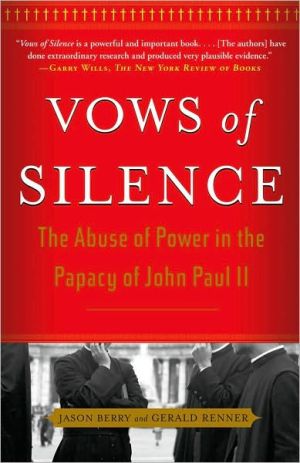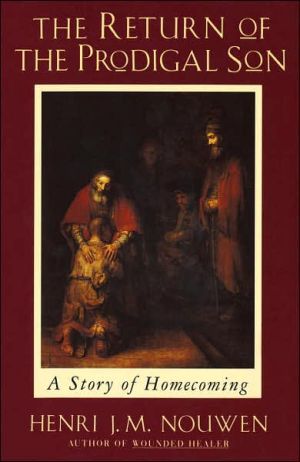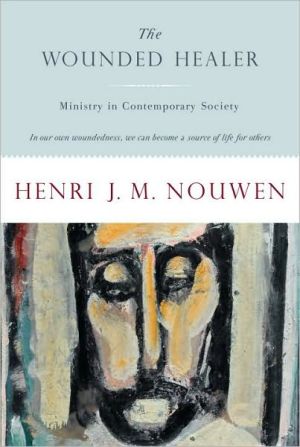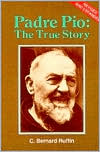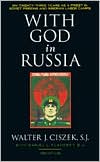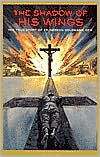Vows of Silence: The Abuse of Power in the Papacy of John Paul II
Going deep behind the headlines about scandals in the Catholic Church, Jason Berry and Gerald Renner’s Vows of Silence follows the staggering trail of evasions and deceit that leads directly to the Vatican and taints the legacy of Pope John Paul II. Based on more than six years of investigative reporting and hundreds of interviews, this book is a riveting account of Vatican cover-ups. Both a profound criticism and a wake-up call to reform by two Catholic writers, Vows of Silence reveals an...
Search in google:
Going deep behind the headlines about scandals in the Catholic Church, Jason Berry and Gerald Renner’s Vows of Silence follows the staggering trail of evasions and deceit that leads directly to the Vatican and taints the legacy of Pope John Paul II. Based on more than six years of investigative reporting and hundreds of interviews, this book is a riveting account of Vatican cover-ups. Both a profound criticism and a wake-up call to reform by two Catholic writers, Vows of Silence reveals an agenda of top-down control under John Paul II and a hierarchy so obsessed with secrecy as to spawn disinformation. It is not a book about sexual abuse; it is a book about abuse of power, throughout the Vatican. Library Journal Investigative journalists Berry (Lead Us Not into Temptation) and Renner (recently retired from the Hartford Courant) spent six years tracking patterns of clerical sexual abuse within the Roman Catholic Church. This powerful and well-researched book focuses on two figures: former Vatican diplomat/canon lawyer Thomas Doyle, a Dominican friar and heroic defender of abuse victims; and Marcial Maciel, Mexican priest-founder of the militaristic religious order Legion of Christ, who has been investigated by the Vatican for pedophilia and whose organization has promoted close ties with John Paul II. The media generally views Church practices, which attempt to avoid scandal for both accused and accusers, as secretive, even stonewalling. In addition, the differences in approach between the Vatican, which prefers secret trials, and the American bishops, who do not, have delayed justice and exacerbated victims' suffering. While examining these legal practices, the authors make a compelling case against the legion's controversial activities in controlling several U.S. diocesan schools. Written in the hope of helping the Church continue to reform itself, the book is highly recommended for public and academic libraries, and especially for parents and religious leaders.-Anna M. Donnelly, St. John's Univ. Lib., Jamaica, NY Copyright 2004 Reed Business Information.
Vows of Silence\ The Abuse of Power in the Papacy of John Paul II \ \ By Jason Berry Gerald Renner \ Free Press\ Copyright © 2004 Jason Berry and Gerald Renner\ All right reserved.\ ISBN: 0-7432-4441-9 \ \ \ Prologue\ The story Juan Vaca told was baroque and chilling, but he wanted Bishop John Raymond McGann to understand why he had come to the diocese of Rockville Centre, Long Island. It was April of 1976. Father Vaca, thirty-nine, had dark hair flecked with silver, a fair brown face, and the discerning bishop could perhaps see the melancholy in his eyes and the sadness in his demeanor. In later years Vaca would study psychology to, as he said, "determine where sickness ends and evil begins." \ Vaca had joined the Long Island diocese just as McGann's predecessor was retiring. Men from the religious orders, like Jesuits or Franciscans, often serve in dioceses, but few asked to officially change status from religious to diocesan clergy. Father Vaca had impeccable credentials. In Orange, Connecticut, he had served five years as the U.S. director of the Legionaries of Christ, a religious order with headquarters in Rome.\ The Legion was founded in Mexico in 1941 by Marcial Maciel Degollado. Under Father Maciel, the Legionaries built a network of schools and universities in Mexico, and branched out with prep schools and seminaries in Spain, Latin America, Ireland, and now America. With the Legion's growth, Maciel's stature rose in the eyes of the Roman Curia. By 2003 the Legion would claim eleven universities and over 150 prep schools worldwide.\ Recruited by Maciel as a ten-year-old in Mexico, Vaca had grown up in the Legion, studying at the order's seminaries in Europe. Vaca told Bishop McGann that Maciel began sexually abusing him when he was twelve. He said that Nuestro Padre - Our Father, as Legionaries call the founder general - had used him in a perverse sexual relationship until Vaca was twenty-five. Maciel ran the Legion like a dictator, according to Vaca, and had dominated him by cutting him off from his family. Bishop McGann took it all in. Then he asked a classically American question: Didn't anybody blow the whistle?\ Not that I know of, replied Vaca.\ McGann's diocese encompassed Suffolk and Nassau Counties. He relied upon the generosity of Irish, Italian, and Hispanic descendants of an immigrant church, many of whom commuted into Manhattan jobs their forebears barely imagined. Nearly a third of the Fortune 500 CEOs were Roman Catholic. McGann was of that generation of bishops who were builders, broadening the infrastructure of parishes, schools, colleges, and services that lifted Catholics from the margins of society to prosperity and power.\ Sexual misconduct of priests was not a media topic in those days. Within the clerical world, stories occasionally circulated of priests having affairs with women, or even men. Priests were human, not without sin. In the eyes of millions of Catholics, the church nevertheless stood for moral rectitude. Father Vaca's charges went far beyond "sin." McGann had been appointed a bishop by Pope Paul VI and answered to him. McGann's priest was alleging severe moral crimes by the head of an international order. The Holy Father must be informed about this. Father Vaca had asked his bishop for help.\ McGann was deceased when a Long Island grand jury made headlines in 2002 with a voluminous report that condemned the Rockville Centre diocese for a systemic pattern of concealing priests who molested children and lying to the families of those abused. In the case of Father Vaca, a bishop tried to do the right thing.\ McGann told the Mexican cleric he would report Maciel to the Vatican. Vaca was skeptical; he thought Maciel had influence in the Curia to block an investigation. McGann insisted that they report through correct channels; he would write to the papal delegate in Washington, D.C. But a document of such gravity must be specific: Vaca had to take that next step. Over the summer Vaca settled into parish work in the town of Baldwin. On October 20, 1976, he sat down in St. Christopher's Rectory and wrote a twelve-page, single-spaced letter to Maciel. After thanking Maciel for his release from the Legion, Vaca got blunt:\ For me, Father, the disgrace and moral torture of my life began on that night of December 1949. Using the excuse that you were in pain, you ordered me to remain in your bed. I was not yet thirteen years old; you knew that God had kept me intact until then, pure, without ever having seriously stained the innocence of my infancy, when you, on that night, in the midst of my terrible confusion and anguish, ripped the masculine virginity from me. I had arrived at the Legion in my childhood, with no sexual experience of any kind.... It was you who initiated the aberrant and sacrilegious abuse that night; the abuse that would last for thirteen painful years.\ Vaca's cri de coeur is a riveting document, even amidst the recent tide of legal actions against priests and the media's coverage of the double lives that too many clerics have led. Vaca identified twenty men with Mexican or Spanish surnames, their place of residence in parentheses. "All of them, good and gifted young boys ... personally told me that you committed the same sexual abuses against them, whose names I place before God as a Witness."\ Vaca also impugned Regnum Christi, an organization the Legion had fostered to inspire laypeople as evangelists for the kingdom of Christ on earth. Vaca scored "the RC movement itself, with their procedures of secretism, absolutism and brainwashing systems, following the methods of secret societies rather than the open and simple evangelic methods ... [and] through the use of subtle arrogance and vanity, [deluding members] into believing that they are the preferred beings and that they have been chosen by God." Vaca had a sister who as a "consecrated woman" had taken vows in Regnum Christi back in Mexico; he demanded that Maciel send her back to their family. Vaca wanted to be left alone to rebuild his life. Finally, "for the good of the Church," he told Maciel, "Renounce your position."\ Vaca never got a reply from Maciel.\ A dispassionate analysis of the letter holds three possibilities. The first is that Vaca was unstable and fabricated a defamatory picture of Maciel. The second is that Maciel was guilty and had no reason to risk self-incrimination with an answer. The third possibility - which presumably crossed Bishop McGann's mind - is that Vaca was substantially telling the truth, though perhaps not every single allegation, like brainwashing, could be proven.\ Under the Code of Canon Law, McGann had a responsibility to act on the letter, or dismiss it, based on his judgment of Vaca's character and credibility. Of the twenty victims Vaca listed, one was a priest in the same Long Island diocese. The Reverend Félix Alarcón, then forty-three, had grown up in Spain and joined the Legion in early adolescence. Alarcón had opened the Legion of Christ center in Connecticut in 1965 and left the following year to join the Rockville Centre diocese. "I would have taken this to my grave," Father Alarcón said later, "but when my bishop asked me to verify what Vaca said, I was in the fray." Maciel, he stated, had sexually abused him often, as a seminarian. McGann consulted with his canon lawyer, the Reverend John A. Alesandro. The canonist prepared a dossier that included a statement from Alarcón to buttress Vaca's damning letter to Maciel. Father Alesandro sent the package to the papal delegate in Washington. In vouching for the two ex-Legionaries, McGann and Alesandro were inviting a Vatican investigation into a man with an established base in the ecclesiastical power structure in Rome.\ The result was - nothing. No Vatican official requested more information. The allegation that the founder of an international religious order was a pederast, and that his organization used brainwashing, met a cool Roman silence.\ Two years later, in August of 1978, Vaca flew to Mexico to be with his family as his father was dying of cancer. His sister, still in Regnum Christi, resisted his pleas to leave the group. But Vaca was in a deeper crisis. He had fallen in love with a woman and felt guilty for remaining a priest. On return to Long Island he told Bishop McGann and asked to be laicized - to be dispensed from the obligations of the priesthood. Laicization required sending a petition to Rome. As part of his reason for leaving, Vaca again returned to the sexual abuse by Maciel.\ Taking Vaca's troubled background into account, the bishop suggested he take a leave of absence from ministry to sort out his life. McGann also asked Vaca to see a psychiatrist. Several months into the sessions, Vaca disentangled himself from the relationship and returned to ministry. He also renewed his quest to see Maciel removed. Once again, the canonist Alesandro sent a dossier to the Holy See's apostolic delegate in Washington, D.C. On October 16, 1978, Cardinal Karol Wojtyla, the archbishop of Krakow, was elected pope and took the name John Paul II. The Sacred Congregation for Religious at the Vatican sent a receipt of the complaint. In 1997, when Gerald Renner asked Monsignor Alesandro why nothing happened, he spoke with reluctance: "All I can say is that there are different levels where people are informed about this. It was our duty to get this stuff into the right hands. I don't know why it was not acted on.... It's a substantive allegation that should have been acted on."\ "It's amazing," reflected Father Alarcón. "There are big people in Rome who are avoiding this."\ Juan Vaca left the priesthood after psychotherapy and more struggle with celibacy. On August 31, 1989, he married in a civil ceremony. On October 28, 1989, Vaca wrote a seven-page letter to Pope John Paul II requesting dispensation from his vows. Although he no longer functioned as a priest, Vaca and his wife wanted their marriage blessed by the church. For a former priest or bishop, that requires the pope's approval of laicization.\ Monsignor Alesandro again sent a Vaca document to the apostolic embassy in Washington. Again he received confirmation of its receipt by Rome. Vaca wrote as if speaking personally to John Paul II, reflecting on his life, his failings, his marriage. He wrote of "being poorly trained" for the priesthood "because of the serious traumas I suffered for years for being sexually and psychologically abused by the Superior General and Founder, Marcial Maciel ... in the same way I soon realized he was doing to other seminarians."\ Four years later Vaca received the dispensation, one of thousands bearing the papal signature. He never heard a word about Maciel or the allegations. In 1997, in response to our questions for a report, Maciel denied the allegations, and continues to.\ Why did Pope John Paul II protect Maciel?\ The Vatican is under no obligation to assist investigative journalists. In the seven years since we first contacted the office of the papal spokesman, Joaquin Navarro-Valls, for comment on accusations by nine ex-Legion members that Maciel had abused them, the Vatican refused comment. No Vatican official ever told us Maciel was innocent. There was simply no answer to the accusations in media reports. The charges that Vaca and others filed against Maciel in a Vatican court of canon law in 1998 were shelved: no decision. Instead, Pope John Paul in 2001 praised Maciel at a sixtieth anniversary celebration of the Legion's founding. That symbolic acquittal from a pope who championed human rights under dictatorships is a numbing message on the state of justice in the church.\ Our first report on Maciel, in the February 23, 1997, Hartford Courant, drew upon the accounts of Vaca, Alarcón, and seven other former Legionaries. Maciel refused to be interviewed. The Legion of Christ hired a blue-chip Washington law firm to try to kill the report. The Legion uses its newspapers, publicists, and apologists on its Web site to portray Maciel as a victim falsely accused. His supporters include some of the wealthiest citizens of Spain and Latin America, many of whose children attend or have studied at Legion schools or colleges. Americans who champion the Legion include George Weigel, a biographer of Pope John Paul II, and William J. Bennett, the author and lecturer on moral values. Maciel's defenders include the Reverend Richard John Neuhaus, the editor of the journal First Things; William Donohue, the director of the Catholic League for Religious and Civil Rights; Mary Ann Glendon, the Learned Hand professor of law at Harvard; and Deal Hudson, the editor of Crisis magazine.\ Most Catholics in the English-speaking world know nothing of Father Maciel, the strange history of Regnum Christi, or the Legion's methods of psychological coercion. In America, Legion schools have left a trail of litigation and embittered former followers, even as the order lays plans for universities in Sacramento, California, and Westchester County, New York. In Latin America and Spain the Legionaries are a major religious movement, and in Mexico a national institution.\ How do the Vatican courts treat accusations of great moral crimes by a priest close to the pope? How has the Vatican responded to the larger sexual crisis in the priesthood? These questions bear not just on Maciel and the response of many bishops to child molesters, but on eroding assumptions about clerical life. The Reverend Donald B. Cozzens, a former seminary rector, has written that the priesthood "is, or is becoming, a gay profession" - echoing an issue raised in 1992 by Jason Berry in Lead Us Not into Temptation.\ Of twenty-one hundred priests identified in U.S. legal proceedings since the 1970s, the overwhelming majority preyed on teenage boys, according to Dallas attorney Sylvia Demarest, who has kept an extensive database. Therapists at a handful of institutions that specialize in treating such priests asked the bishops to fund a study that would assess the clinical findings. "The bishops voted it down," stated Dr. Leslie Lothstein, a clinical psychologist at the Institute of Living, a facility in Hartford, Connecticut, with a history of treating sex offenders. "The study people in the church don't want is comparing deviant sexual behavior among Protestant, Jewish and Catholic clergy. We've seen over 200 priests involved with teens or children.... Of about fifty ministers of other denominations I've counseled, the vast majority have been involved with adults - women."\ In June 2002, three years after Lothstein's remark, the American bishops appointed a National Review Board to gather data on clergy sex offenders in the dioceses. That study was under way as we completed this book. The bishops' denial of sexual crimes within the ranks was an unintended consequence of the celibacy law. That is not to say that celibacy causes men to abuse children, any more than marriage can be blamed for incest. Sexual behavior is rooted in personality development.\ \ Continues...\ \ \ \ Excerpted from Vows of Silence by Jason Berry Gerald Renner Copyright © 2004 by Jason Berry and Gerald Renner. Excerpted by permission.\ All rights reserved. No part of this excerpt may be reproduced or reprinted without permission in writing from the publisher.\ Excerpts are provided by Dial-A-Book Inc. solely for the personal use of visitors to this web site. \ \
Prologue1Ch. 1To Be a Priest13Ch. 2Evidence of Things Unsaid31Ch. 3Exile and Renewal53Ch. 4A Time of Solidarity72Ch. 5Pope John Paul II Breaks His Silence91Ch. 6Memories of the Cardinal106Ch. 7Evangelism by Stealth125Ch. 8Myth of the Founder146Ch. 9The War Against Internal Enemies166Ch. 10The Legion's Defense of Father Maciel187Ch. 11In the Vatican Courts205Ch. 12Religious Duress225Ch. 13Orthodoxy and Deception243Ch. 14The Legion's American Battles259Ch. 15A Vatican of Naked Truths274Epilogue294Glossary of Church Terms309Notes313Acknowledgments337Index343
\ Library JournalInvestigative journalists Berry (Lead Us Not into Temptation) and Renner (recently retired from the Hartford Courant) spent six years tracking patterns of clerical sexual abuse within the Roman Catholic Church. This powerful and well-researched book focuses on two figures: former Vatican diplomat/canon lawyer Thomas Doyle, a Dominican friar and heroic defender of abuse victims; and Marcial Maciel, Mexican priest-founder of the militaristic religious order Legion of Christ, who has been investigated by the Vatican for pedophilia and whose organization has promoted close ties with John Paul II. The media generally views Church practices, which attempt to avoid scandal for both accused and accusers, as secretive, even stonewalling. In addition, the differences in approach between the Vatican, which prefers secret trials, and the American bishops, who do not, have delayed justice and exacerbated victims' suffering. While examining these legal practices, the authors make a compelling case against the legion's controversial activities in controlling several U.S. diocesan schools. Written in the hope of helping the Church continue to reform itself, the book is highly recommended for public and academic libraries, and especially for parents and religious leaders.-Anna M. Donnelly, St. John's Univ. Lib., Jamaica, NY Copyright 2004 Reed Business Information.\ \ \ \ \ Kirkus ReviewsSure to be controversial, a journalistic expose of the "gay priest culture" that has brought so much publicity, and so much shame, to the Catholic Church. The incidence of sexual abuse of minors at the hands of priests seems to have skyrocketed in recent years. But, reporters Berry (Lead Us Not Into Temptation, 1992) and Renner show, widespread reports of priestly misconduct have been circulating since the late 1970s, when straight priests left the Church in droves in order to marry while "the proportion of homosexuals among men remaining in the ministry escalated." The gay priest culture that arose at that time was "cynical about celibacy, riddled with hypocrisy and narcissistic behavior," they write; moreover, among its numbers were priests who later rose high in the ranks of the Church hierarchy, among them Father Marcial Maciel, the founder of the militantly right-wing Legion of Christ, whose misdeeds occupy much of Berry and Renner's narrative. Against the malefactors stand a few dissidents such as Father Tom Doyle, the hero of this story; they are few, Berry and Renner argue, because the Vatican under Pope John Paul II has chosen to ignore child molestation while throwing the weight of what used to be called the Holy Office of the Inquisition against whistle-blowers. The authors, both avowed Catholics, seem not to be homophobic-"The notion that homosexual people are inclined toward 'an intrinsic moral evil' (as the Vatican would have it) is unimaginable coming from Jesus' lips"-and they acknowledge that plenty of gay priests serve God without victimizing their young parishioners. Still, they might have been more careful to point out that "homosexual" does not ipso facto equal"pedophile," an implied assertion at several turns. Despite such lapses and a tendency to breathlessness, this stands as a well-reasoned indictment of contemporary Church policy, a useful rejoinder to John van der Zee's Agony in the Garden (2002) and John Cornwell's Breaking the Faith (2001).\ \
